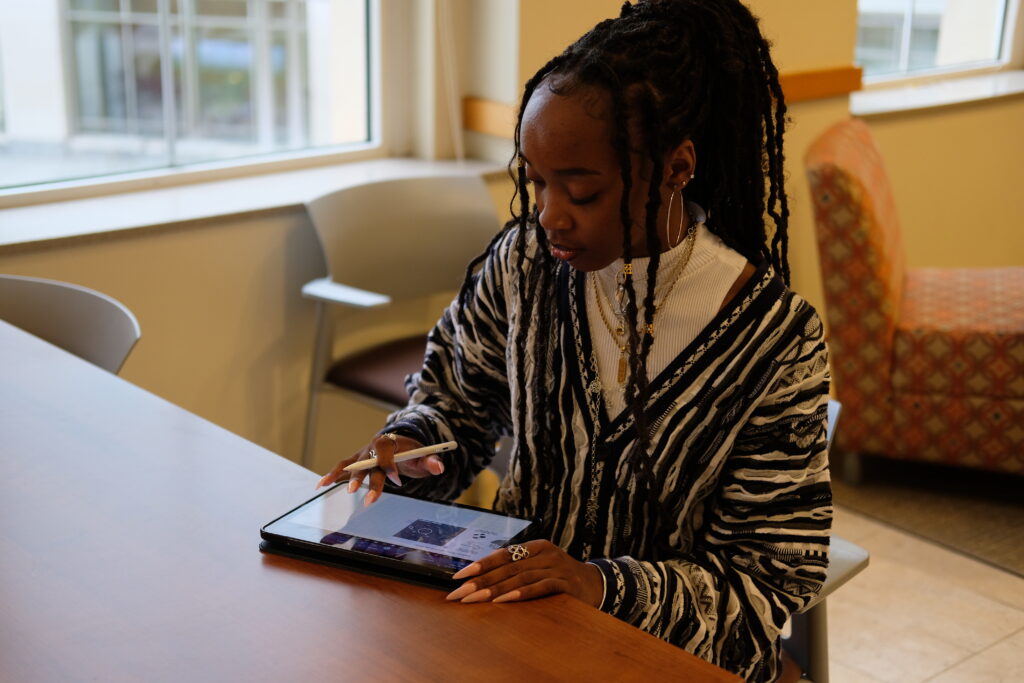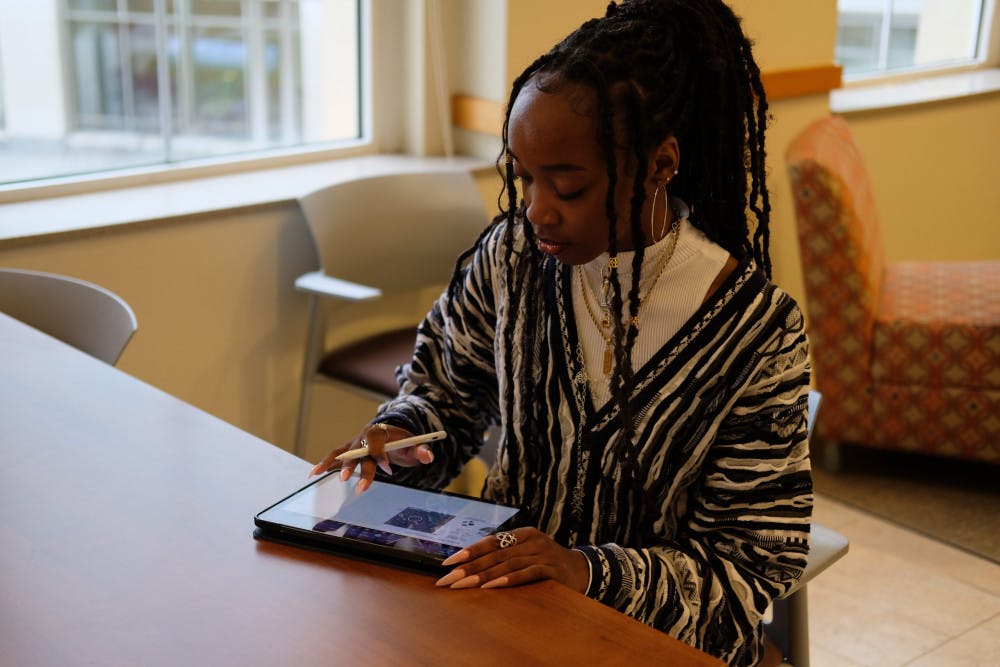 (Alya Khoury/Contributing Photographer)
(Alya Khoury/Contributing Photographer)
Surrounded by white coats and dissection forceps, Faith Mason (26N) discovered her interest in health care as a middle schooler in University of Georgia’s Mini Medical School summer camp program. What Mason didn’t know then, however, was just how far her aspirations would take her.
Mason was accepted into Emory University’s Nell Hodgson Woodruff School of Nursing at just 17 years old, after beginning her undergraduate education at Emory University College of Arts and Sciences at 16. Faith will be starting at the nursing school this fall, on the path to becoming a registered nurse. She is also taking pre-med classes at Emory College of Arts and Science, as she hopes to attend medical school after finishing nursing school. Her ultimate goal is to become a pediatric oncologist.
Early Interest
Growing up with such big ambitions at a young age was not easy. Mason was already ahead of her peers at 5 years old, after completing pre-K, kindergarten and first grade in just one-and-a-half years. At just 12 years old, Mason entered high school. The two-year age difference that separated Mason from her peers was already quite noticeable, even more so, Mason said, when she wanted to take classes that were meant for high school upperclassmen.
“It was really scary because I was this little 12-year-old who really wanted to do what I was doing, but it was still so intimidating,” Mason said.
Mason said she felt a distinct isolation from her classmates, recalling still enjoying Disney Channel while her classmates discussed shows like “Grey’s Anatomy” and “How to Get Away with Murder” at school.
“It was really, really hard for me to try and bridge that gap and have other connections outside of, ‘Oh, we’re in the same class. Let’s do a group project,’” Mason said. “It was something that I really struggled with up until the beginning of my senior year.”
While trying to overcome these hardships, Mason said that her mother became her rock. She enrolled Mason in afterschool programs and summer camps with kids her own age and always motivated her to try her hardest in school, Mason said. Growing up with a single mom, Mason recognized the challenges for both herself and her mother.
“She would always say [that] her job is to make money and to provide for us,” Mason said. “My job is to listen and learn. As long as I keep on listening and learning and excelling, then I’m doing my job.”
Learning at Emory
Now a sophomore at Emory College and an admit to the nursing school, Mason has maintained a self-driven motivation to achieve her goals.
“It is more rare to see a student as involved as Faith is at this level, being a college sophomore and especially that she is the age that she is,” nursing school Assistant Dean of Admissions Katie Kennedy said. “I think it really speaks to her determination and motivation in life.”
In her two years at Emory, Faith said she has found role models and support in Emory’s Black academic community. All of Mason’s nursing professors are Black women. Jasmine Clark, Mason’s microbiology professor, has also been a state representative in Georgia since 2019.
“All of my nursing professors are accomplished Black women, and it really means so much to have that representation,” Mason said.
However, Mason said that she has faced discrimination in her pre-med classes.
“I’ve encountered a lab partner who didn’t want to speak to me, people who just completely disregarded what I’ve had to say,” Mason said. “In lab groups, [when] I’m trying to talk to [them], they all look me straight in my face, and they turn their heads — just very small instances of microaggressions.”
Mason said that Emory’s Black community has helped her face these challenges, especially studying alongside Black pre-med students. She said that forming study groups with her friends and creating a collaborative academic environment together has played an important role in building a strong support system on campus.
“Since coming to Emory, I have grown a lot as a person because of the people I’ve surrounded myself with: people who are also driven, people who are understanding, who are kind, who are so courageous, who are so brave after everything they’ve been through [and] everything they’ve experienced,” Mason said.
In addition to her peer groups at Emory, Mason said that she has also found community in Eagle Hall’s Black Women’s Immersion floor and in Ngambika, Emory’s step dance club. Stepping, a dance that originates from a combination of African folk traditions and Black Greek life, is a tradition that Mason didn’t participate in before coming to Emory. But in search of new friends, she decided to give it a try and soon found a friendly, supportive community that she grew to love.
“It was through me being in Ngambika — being more out there, being more involved — that I made a lot of close connections,” Mason said.
Giving Advice
Mikaila Ulmer (26C), one of Mason’s closest friends at Emory, compared being friends with Mason to “a breath of fresh air” because of her authenticity.
“Not only is she driven, but she also finds a way to be light-hearted through the tough times,” Ulmer said.
Mason, like many college students on the pre-med or pre-nursing track, experienced difficulties while trying to balance the academic rigor of her classes with a social life.
“There’s always that worry of imposter syndrome or comparing yourself to others or feeling like you’re behind,” Mason said. “You can get really swept up in so much of the future that when you think about what you have now, you’re truly not in as bad of a situation as you think you are.”
For ambitious high schoolers and college freshmen, Mason offered advice she received from her grandmother and mother.
“Don’t worry about tomorrow, for tomorrow will worry about itself,” Mason said.









